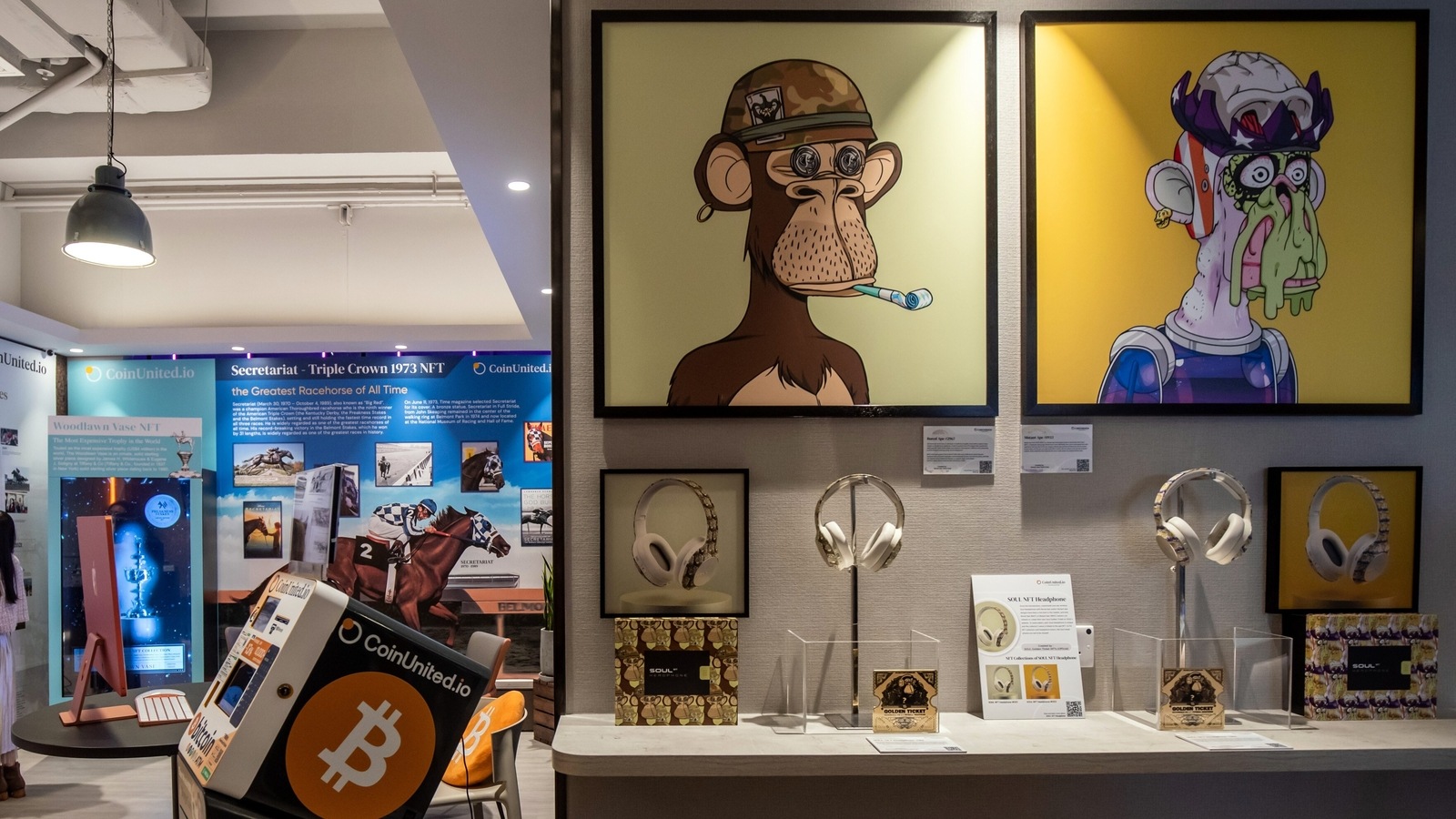Bored Ape’s New Crypto ApeCoin Reveals an NFT Power Problem
The story of ApeCoin’s launch also highlights a trouble spot at the cutting edge of crypto, where venture capital firms like Andreessen Horowitz often end up among the biggest beneficiaries.
Bored Ape Yacht Club is a wildly popular collection of nonfungible tokens, or NFTs, a status symbol coveted by celebrities, athletes and venture capitalists alike. Bored Apes are already the third-most valuable collection of NFTs, with $1.5 billion in all-time sales, according to blockchain data tracker CryptoSlam. They also unlocked early access to a new digital currency — ApeCoin.
ApeCoin launched Thursday in a type of release known as an “airdrop,” in which certain groups of crypto holders automatically receive tokens as a reward. In this case, 1 billion ApeCoins dropped, with owners of Bored Ape NFTs in line to receive some of the haul.
The coin grants holders influence over another crypto-native entity known as a decentralized autonomous organization, or DAO. The idea was to give the Bored Ape community a hand in shaping the decentralized, blockchain-powered vision of the internet that venture capitalists often describe as web3. The Bored Ape DAO will use the blockchain to enable and record votes on decisions related to how the community is managed.
Together, though, the ApeCoin and DAO have provided yet more grist for some of the harshest criticisms about venture capitalists’ influence and power in this evolving space.
Typically, the more tokens a participant has in a DAO, the more say they have over the group’s governance. And venture capital investors that helped with the launch, including Andreessen Horowitz and Animoca Brands, were some of the biggest recipients of ApeCoins. They and other launch partners received a collective 14%, or 140 million tokens, a spokesperson for Yuga Labs, the creator of Bored Ape Yacht Club, confirmed to Bloomberg.
These token holdings could grant Andreessen Horowitz and Animoca substantial influence over ApeCoin DAO, despite the fact that the group is supposed to be decentralized, with no specific entity in control. It’s these kinds of moves that have earned VCs the ire of people such as Block CEO and Bitcoin enthusiast Jack Dorsey. He tussled with Andreessen Horowitz’s Marc Andreessen and Chris Dixon on Twitter over VCs having too much influence over web3, which Dorsey claimed goes against blockchain’s tenets of promoting the distribution and decentralization of power. That said, many venture capitalists including Andreessen delegate the voting of their DAO stakes to organizations like student clubs in an effort to dilute their influence.
If Andreessen Horowitz and Animoca choose to sell their tokens and lessen their influence in ApeCoin DAO, they could also stand to make a tidy profit on something they received for free. ApeCoin’s price has fluctuated widely since Thursday and was at $14.36 as of Friday evening, an increase of 66% from the day before, according to CoinMarketCap. At this price, the amount of ApeCoin allocated to launch partners is equivalent to more than $2 billion.
The ApeCoin launch is just a small illustration of how VCs are some of the biggest winners from crypto’s rise, after having collectively poured $32.5 billion into the industry in 2021, according to Pitchbook. Even if Andreessen Horowitz does sell off its ApeCoins, it’s already had a hand in creating ApeCoin DAO.
The ApeCoin launch has other signs of a concentration of power. The four founders of Yuga Labs received a collective 8% of the ApeCoins released. As a company, Yuga Labs received 15% of the airdrop, equivalent to the total percentage given to owners of Bored Ape NFTs or Mutant Apes, which is part of a spin-off NFT collection. The Jane Goodall Legacy Foundation, a charity organization, received 1% of the launched coins. The ApeCoin DAO treasury received 47% of the drop.
The allocation also shows the growing influence Yuga Labs has over the NFT space. The company purchased the intellectual property of the CryptoPunks and Meebits collections from Larva Labs earlier this week. Andreessen Horowitz is reportedly considering an investment in Yuga Labs that would value the startup at $4 billion to $5 billion, according to the Financial Times.
ApeCoin DAO has a star-studded special council that will enact the DAO’s decisions, that doesn’t necessarily mesh well with crypto’s decentralized nature. It includes big names in crypto such as Reddit co-founder Alexis Ohanian and founder of venture firm Seven Seven Six, as well as Amy Wu, head of the venture arm belonging to crypto exchange FTX.
The launch of ApeCoin — which had a trading volume of over $9.2 billion in the 24 hours ended Friday evening New York time, according to CoinMarketCap — could also spark some regulatory concerns as it bears similarities to a public debut on a stock exchange.
Aaron Brown, a crypto investor who writes for Bloomberg Opinion, said ApeCoin DAO is “a placeholder attempt to capture future potential business under the Bored Ape brand name.”
“It’s closer to a SPAC—money raised today for some possible business to be named later—without the legal protections around real SPACs,” he said. “The project is controlled by a small group of individuals.”
For all the latest Technology News Click Here

